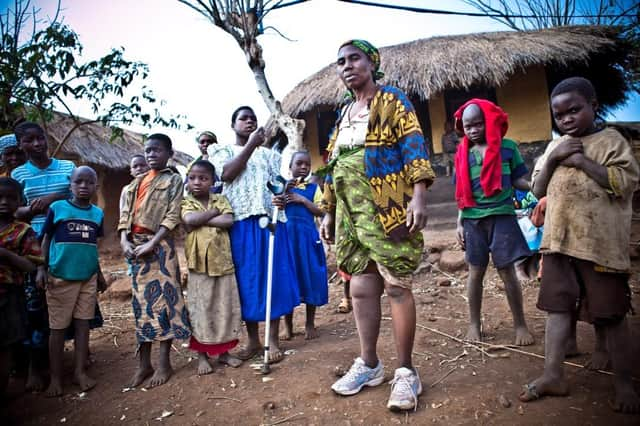Taking a step back to go forward - David Hope-Jones OBE


The Scotland-Malawi relationship is far from perfect in this regard but it does have some very notable features to its credit in terms of sustainability.
First, the overwhelming majority of the 1200-plus civic links between our two nations are not funded by anyone other than the communities themselves and hence they are able to work openly with their partners to listen, and respond to, local needs. Second, many of these links are long-term in nature; with some community and organisational links spanning decades and generations, through which time a depth of mutual understanding and trust is developed. Third, and most importantly, they are often underpinned by a sense of dignified two-way partnership and human solidarity rather than pity, or a patronising sense of the Scottish side ‘knows best’.
Advertisement
Hide AdAdvertisement
Hide AdThere are a great many positive examples of real sustainability in action in the bilateral relationship but perhaps one of the most inspiring was when Scottish charity ‘500 miles’ recently handed over their prosthetic and orthotic clinic in the north of Malawi to Mzuzu Central Hospital and the Government of Malawi’s Ministry for Health. The programme in central and northern Malawi has been a huge success, it has transformed the lives of almost 10,000 people: giving those who have lost limbs or the use of limbs the chance to have a normal life through prostheses and orthoses.
To 500 miles’ immense credit, they have always worked in partnership with the Ministry of Health and the tertiary care hospitals where they are based. They have had a steadfast commitment to sustainability of effort.
The charity not only physically built two clinics but also trained 11 clinicians to international standards as well as technical staff, and worked together with Mzuzu Central Hospital to develop systems to ensure a smooth handover.
500 miles continue to raise essential funds in Scotland to support their much busier centre in Lilongwe (and I encourage all who can, to take part in their excellent ‘Big Dinner’ campaign - www.500miles.co.uk/bigdinner2/) but have successfully taken a step backwards in Mzuzu, confident that strong local leadership will ensure these essential services will continue to serve the north of Malawi.
I recently received an email from Malawi’s Minister of Health in which she communicated her genuine enthusiasm for the handover, describing this as a valuable step in the right direction, welcoming the news wholeheartedly, and pledging her maximum support for the clinic. There is no doubt in my mind that this approach, of working with and through the national healthcare systems, supporting local leadership, helping build local capacity and expertise, and working in dignified partnership, are all essential for work like this to succeed.
There is no easy answer to what makes an international engagement “sustainable” and sometimes even the best intended work falls far short of this. In the Scotland Malawi Partnership (the national network helping coordinate the bilateral relationship), we’re keen to dig further into sustainability: redoubling efforts to really listen to communities in Malawi about what works and what doesn’t, and looking to draw learning from the past to inform our shared future.
We’re delighted to join others in celebrating what the Malawian prosthetic and orthotic clinicians and technicians have achieved, in dignified partnership with 500 miles, and with the kind support of countless Scots. There are lessons to be drawn from this success and more to be done to really understand what makes a sustainable international partnership.
David Hope-Jones OBE, Chief Executive, Scotland Malawi Partnership
Comments
Want to join the conversation? Please or to comment on this article.